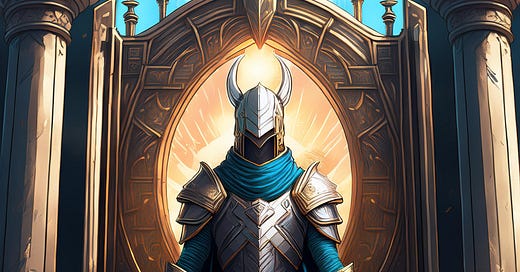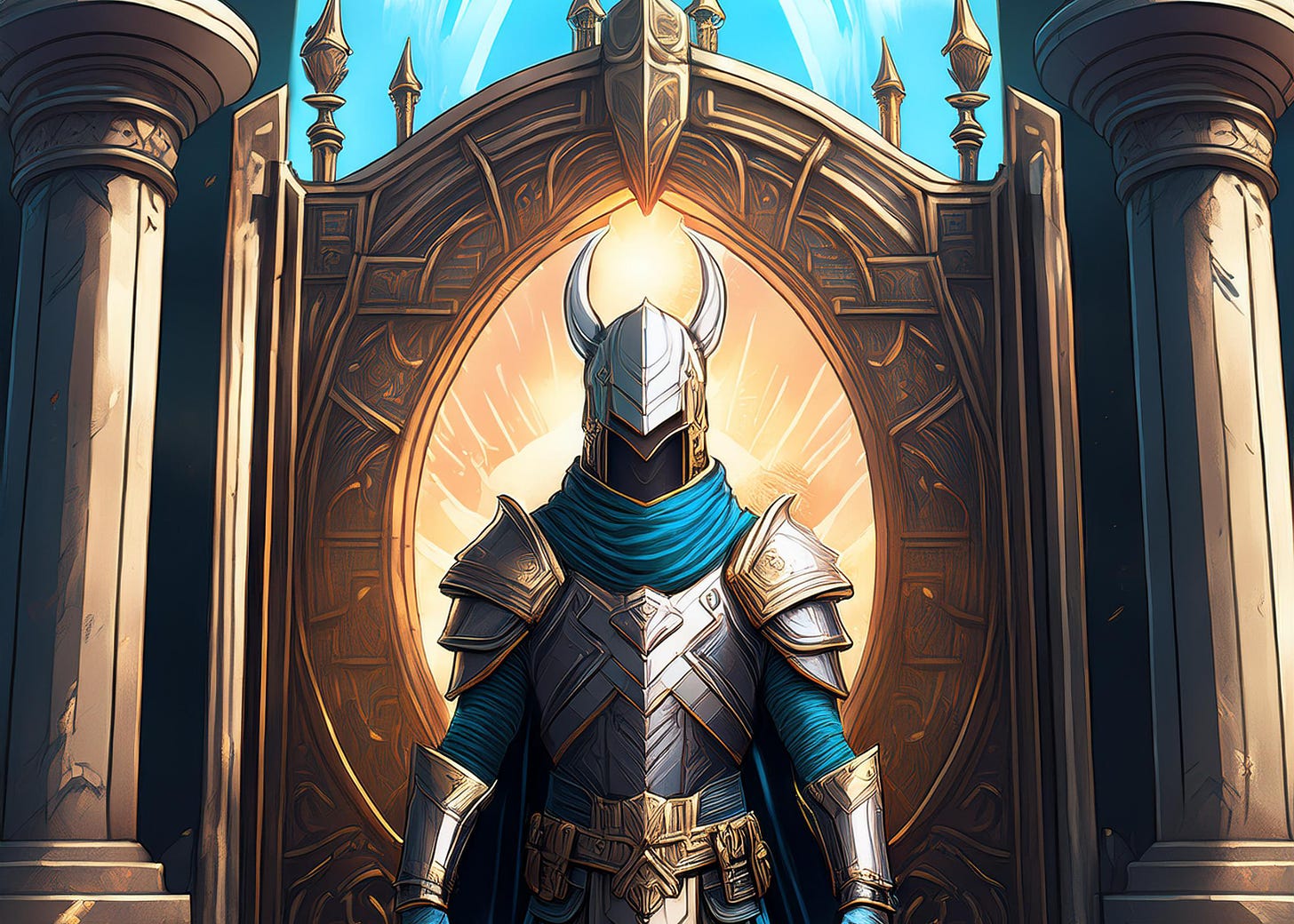What Does 'Gatekeeping' Mean in RPGs?
Have you ever heard someone accused of Gatekeeping or being a Gatekeeper? It certainly sounds very ominous and the type of thing where you might want to ensure they don't come into contact with a Key Master or very bad things may happen such a giant marshmallow man rampaging down the streets of New York City. But Gatekeeping is actually a bit more mundane. It simply means someone who feels as if they can judge the right or wrong way to do something.
The idea of gatekeeping goes far beyond tabletop role-playing games, but for the purposes of this article, we'll keep it to just how it affects Dungeons and Dragons and other pen-and-paper games. A typical D&D gatekeeper might fancy themselves an expert in the rules and often has a lot in common with mansplainers. You can identify them in the wild by their gnarly teeth and fondness for cloaks. They are typically a challenge rating 3 opponent, but they have on major weakness:
It's your game and you can play it however you want to play it.
Gatekeeping can come in many different forms, and sometimes it is so camouflaged it is hardly recognizable. Here's an example of gatekeeping that many people don't even realize: the demand for a group composed of all of the major archetypes (fighter, thief, healer, mage). You may have come across players who are insistent the group must be perfect and not put them together with the idea of gatekeeping, but the truth is a good DM will adapt to the party. If rolling an official campaign, a particular archetype of group balance may be more important, but if doing a homebrew campaign, the DM has plenty of tools at their disposal to deal with -- for example -- the lack of a healer. There are potions, herbs, magic items, and (of course) the NPC Cleric that goes with you on that particularly hard dungeon crawl.
A Few Common Gates the Keepers Like to Guard
One fun thing about gatekeepers is that they don't all agree with each other. But the most consistent thing about them is that they are very adamant about their opinions. Here are a few things that Gatekeepers like to hang their hats on:
The Rules are the Rules!
Rule lawyers are perhaps the most common form of gatekeeping. And they can easily be among the most annoying. An adamant rules lawyer can drag an entire game session down into an argument that sucks all of the fun out of the game. Luckily, most players aren't quite as adamant, and even when a rule "discussion" breaks out, it can be handled without ruining everyone's fun.
The truth is that the DM is allowed to make up new rules or break rules as they see fit. By extension, a DM wins any rules discussion. But that doesn't mean the DM should always go with their own opinion. A good DM will always listen to their players and try to decide on the best path based on the idea of having the most fun. This can mean 'nerfing' an ability, bending a rule, etc. In essence, the DM cannot cheat. Whatever they say goes. But a good DM is always putting the players first even if they aren't always doing what the players want.
You Can't Play D&D That Way!
Another very common form of gatekeeping is demanding the game be played a certain way. Have you ever heard someone say you can't play the game solo? You very well can play D&D and other TTRPGs solo or without a DM! Again: it is your game. Play it how you want. And playing these games with just a couple of friends or even by yourself can be quite fun!
Dice rolling is another popular form of gatekeeping. The ability to do just about anything if they roll a natural 20 is a common one. I once ran a campaign where I did all of the rolling for both the characters and who they fought, and this was (as you might imagine) met with a giant chunk of "that's now how you are supposed to play D&D!"
And, of course, there are many other forms of this type of gatekeeping such as being strongly in favor or against inter-party conflict rules, having evil characters, character death, etc.
Back When I Played...
As someone who began playing the Dungeons and Dragons Basic Set before moving on to "Advanced" Dungeons and Dragon back in the mid-80s, I admit I cringe when people of my generation put the old rules up on a pedestal.
Don't get me wrong. I love the old rules. I'll always have a fondness for 1st edition, and I personally think that 3/3.5 is the best version. But those are opinions. Every version of D&D has its good points and its bad points.
The truth is the group dynamic is far more important than the rules. If you have a great DM and a good set of players who really get into the roleplaying elements and don't have many out of character arguments, you'll have fun no matter what RPG you are playing or how you are playing it.




